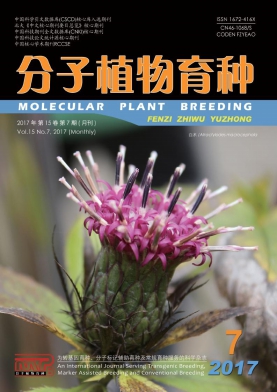摘 要:
探究低温环境下不同浓度刺芒柄花素联合酪氨酸和半胱氨酸的添加对小鼠肝脏产热能力的影响.低温刺激前使用不同添加成分对预饲一周后的小鼠进行为期 28d的灌胃处理.常温对照组每天始终保持在 26±2℃环境中饲养,冷暴露组每天置于 4℃人工气候室中冷刺激 3h,四周后采集小鼠的肝脏组织.通过HE染色法评估肝脏组织形态;通过免疫组织化学技术定量分析肝组织中UCP1 蛋白的表达量;通过Western Blot方法检测肝脏组织中产热因子PGC-1α、PPAR-γ和UCP1 的表达水平.结果发现,酪氨酸和半胱氨酸联合刺芒柄花素显著缓解了由冷诱导的小鼠肝细胞内炎性细胞浸润和细胞坏死,并且三者联合显著上调肝脏中产热因子PGC-1α、PPAR-γ和UCP1 的表达水平,进而提高小鼠肝脏产热能力.
译 名:
Mechanism of Tyrosine and Cysteine Combined with Formononetin in Regulating Liver Thermogenesis in Mice under Low Temperature
关键词:
formononetin%chronic cold exposure%liver%UCP1
摘 要:
The aim of this experiment was to investigate the effect of different concentrations of formononetin combined with tyrosine and cysteine additions on the liver thermogenic capacity of mice in a low temperature environment,the mice were gavaged for 28 days after one week of pre-feeding using the different additions prior to hypothermic stimulation.The normothermic control group was kept at 26±2℃ every day,and the cold-exposed group was cold-stimulated in an artificial climate chamber at 4℃ for 3 h every day,and liver tissues were collected after four weeks.Liver tissue morphology was assessed by HE staining;the expression of UCP1 protein in liver tissues was quantified by immunohistochemistry;the expression levels of thermogenic factors PGC-1α,PPAR-γ and UCP1 in liver tissues were detected by Western Blot method.The results showed that tyrosine and cysteine combined with formononetin significantly alleviated cold-induced inflammatory cell infiltration and cell necrosis in mouse hepatocytes,and the expression levels of PGC-1α,PPAR-γ and UCP1 in liver were significantly up-regulated by the combination of the three factors,which in turn improved the thermogenic capacity of mouse liver.






